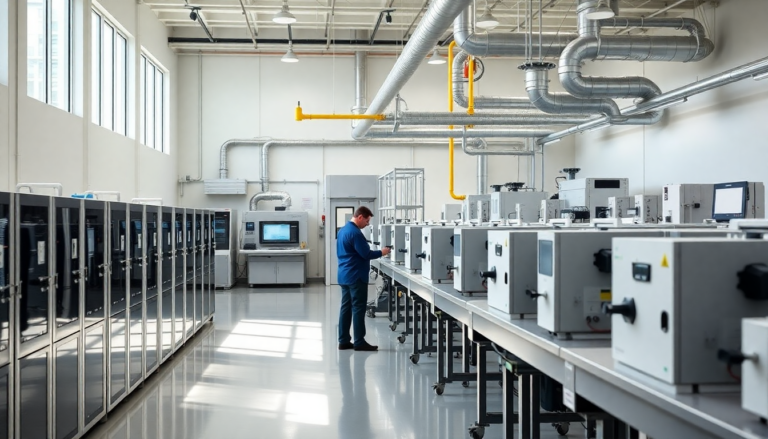Argomenti trattati
Apple’s expanding chip production in the U.S.
As Apple continues to redefine its manufacturing strategy, a significant portion of its chips will now be produced domestically. The tech giant has announced plans to source over 19 billion chips from various states in the United States, highlighting a commitment to domestic production. This year alone, tens of millions of these chips will be fabricated at TSMC’s facility in Arizona, which signifies a major shift in the landscape of technology manufacturing.
The role of TSMC in Apple’s production line
While TSMC (Taiwan Semiconductor Manufacturing Company) is renowned for its advanced chip manufacturing processes used for high-end Apple processors, the Arizona facility is expected to produce chips on the 4nm and 5nm process nodes. Despite these being slightly older technologies compared to Apple’s latest 3nm chips, they still play a crucial role in powering a vast array of Apple devices. Tim Cook, Apple’s CEO, noted during the recent earnings call that this move not only strengthens their supply chain but also enhances their commitment to supporting local economies.
Broadening the supplier base
Apple’s manufacturing footprint in the U.S. extends beyond just chip production. Currently, the company works with more than 9,000 suppliers across all 50 states, ensuring a diverse and resilient supply chain. This extensive network includes American companies that provide components for various Apple products, such as the glass used in iPhones, which is sourced from local manufacturers. Apple’s decision to expand its operations domestically is a strategic move aimed at reducing reliance on overseas production while fostering economic growth within the country.
Investment in technology and infrastructure
In tandem with its chip production goals, Apple has pledged a staggering $500 billion investment over the next four years in its U.S. facilities. This investment will not only support chip manufacturing but also enhance its overall technological infrastructure. New facilities are being set up in states like Texas, where Apple will produce AI servers, further diversifying its technological capabilities. This ambitious plan is expected to create thousands of jobs and stimulate local economies across the states involved.
Chips and components made in America
While TSMC’s Arizona fab will address part of Apple’s chip needs, many of the essential components — such as amplifiers, power management ICs, and Wi-Fi modules — are already manufactured in the United States. These integrated circuits do not require the latest fabrication technologies and can be produced using existing facilities. This indicates that Apple is not only concentrating on advanced chips but is also ensuring a steady supply of essential components through domestic manufacturing.
Future outlook for Apple’s manufacturing strategy
Apple’s shift towards increasing its U.S. chip production is indicative of a larger trend within the tech industry, where companies are reevaluating their supply chains in light of global disruptions. By investing heavily in local manufacturing, Apple is not only securing its supply chain but also positioning itself as a forward-thinking leader in the tech sector. As the company expands its capabilities, it will continue to innovate and adapt to changing market demands, ensuring its products remain at the forefront of technology.
Staying updated with technology trends
For those interested in the latest developments in technology, following reliable sources like Tom’s Hardware can provide valuable insights. By subscribing to their updates, readers can stay informed about industry trends, product reviews, and technological advancements that shape the future of computing.
A glance at TSMC’s future projects
As Apple invests in its U.S. operations, TSMC is also expanding its presence in America. The construction of new fabs capable of producing 1.6nm and 2nm chips reflects the growing demand for advanced semiconductor technology. These developments underscore the strategic importance of semiconductor manufacturing in the global economy.

